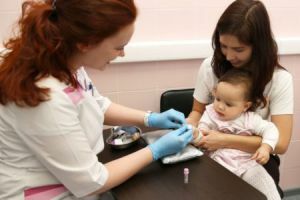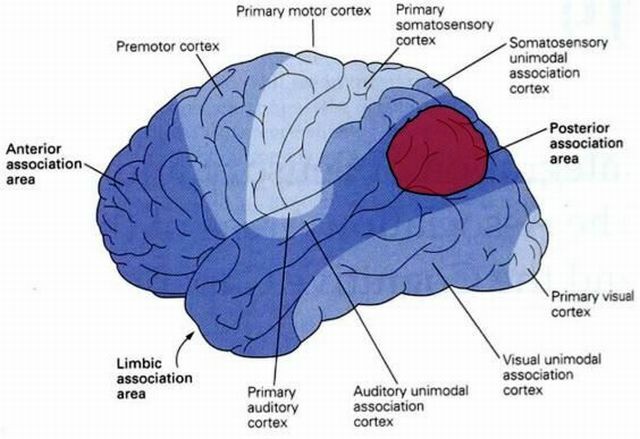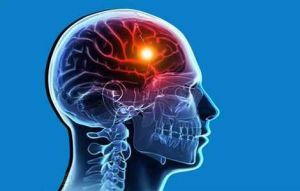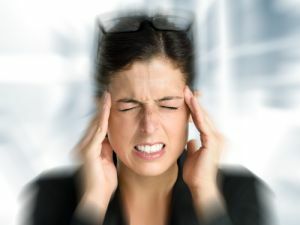 Dizziness attacks are present in many people. The reasons for this phenomenon are different, from fatigue and stuffiness to serious neurological and psychiatric disorders.
Dizziness attacks are present in many people. The reasons for this phenomenon are different, from fatigue and stuffiness to serious neurological and psychiatric disorders.
Psychogenic dizziness, attacks of which arise due to emotional overexertion, stand apart.
Psychogenic dizziness is characterized by a sense of disorientation in space and instability. In addition, there is a feeling that the surrounding objects are rotating. In such a situation, it seems to a person that he partially loses the ability to control his body.
Some people mistake mistakenly for symptoms of psychogenic dizziness, lightheadedness, double vision and temporary visual impairment, as well as a feeling of a "grid" shaking before your eyes. These signs are not at all the main symptoms of the ailment, nor its accompanying symptoms.
As the name implies, the roots of the problem lie in the psychogenic factors and emotional state of a person.

Contents
- Research Brandt
- Mechanism of development of psychogenic vertigo
- Features of the clinical picture
- Concomitant disorders
- Diagnostic steps
- Complex of medical measures
- Complementary remedies and diet
- Preventive measures
Brandt research
Researcher T. Brandt in the process of studying the causes and classification of varieties of dizzinessidentified the main factors provoking the vertigo:
- paroxysmal benign goalovocation;
- psychogenic dizziness;
- basilar migraine;
- Ménière's disease;
- vestibular neuronitis.
As you can see, the vertigo of a psychogenic character ranks second in terms of prevalence. In other words, a large number of attacks of dizziness occur precisely because of stress, emotional and neurotic disorders.
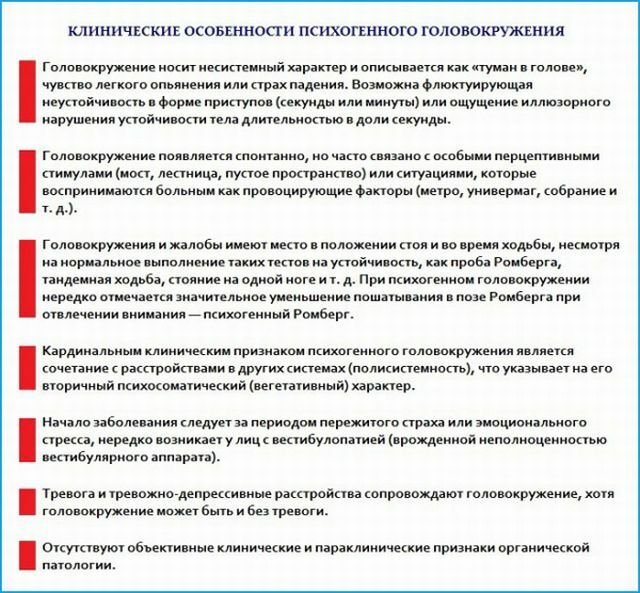
Mechanism of development of psychogenic vertigo
One of the main causes of the onset of attacks of psychogenic dizziness is long-term stress, chronic fatigue and nervous overstrain. This condition often leads to depression of varying severity, which can not but affect the general state of human health.
In addition to emotional disorders, induce psychogenic dizziness attacks and such factors:
- blood pressure jumps;
- insomnia;
- decrease or loss of hearing in one ear;
- osteochondrosis;
- pinch of the arteries in the cervical region;
- problems with vestibular apparatus caused by blood flow disorders;
- neuritis;
- stroke;
- menopause;
- neoplasm in the brain.
These conditions, one way or another, affect the human psyche, often leading to excessive nervousness and emotionality.
Features of clinical picture
How to distinguish psychogenic dizziness from other types of malaise? Such seizures have a number of characteristic features:
- there is a sensation of noise in the ears and head, however, this does not worsen the hearing and does not affect vestibular stability;
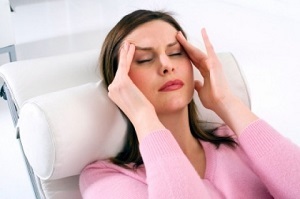
- loses emotional balance, there is a sense of anxiety and the person concentrates solely on malaise;
- during an attack a person does not have enough air and throws in a "cold sweat";
- appears feeling depressed on the verge of depression;
- decreases working capacity and there is a feeling of severe fatigue;
- changes appetite, sometimes it disappears altogether, and at times a person does not have a sense of satiety and is ready to absorb food in large quantities;
- a similar situation arises in terms of sexual activity, characterized by sharp transitions from the complete absence of attraction before it increases.
Concomitant disorders
Quite often, psychogenic dizziness accompanied by other emotional disorders, namely:
- heart rate increases;
- numb and trembling limbs, there is a feeling of "cotton feet";
- man experiences an inexplicable sense of fear, bordering on horror;
- appear chills and goose bumps.
Similar symptoms appear in panic attacks. One way or another, the mental state of a person suffering from this kind of vertigo can not be called absolutely adequate.
Diagnostic stages of the
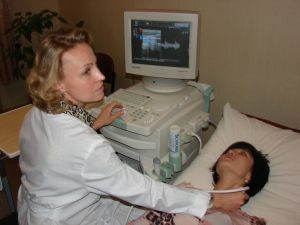 Diagnosis of the violation is carried out in several stages with the participation of a number of specialists.
Diagnosis of the violation is carried out in several stages with the participation of a number of specialists.
This is due to the fact that vertigo is not an independent disease, it is always a consequence of certain violations in the body.
First of all, it is necessary to exclude or identify possible diseases.
For this, the first steps of the study are as follows:
- assessment of the patient's condition and main complaints;
- finding out the situations in which attacks occur;
- analysis of concomitant symptoms;
- review of other patient complaints.
In the course of diagnosis, the following specialists will be consulted:
- therapist to assess general condition and referral to specialist;
- of an otolaryngologist( ENT) to check the functioning of the vestibular apparatus;
- neurologist to assess the state of the nervous system and motor functions;
- cardiologist to exclude cardiovascular disease and assess its general condition;
- psychiatrist, to analyze the emotional state of the patient.
As part of the diagnostic, the following tests are performed:
- general and biochemical blood test;
- determination of glucose level;
- examination of the eyeball;
- assessment of the condition of the auditory organs( audiography);
- tests for balance;
- ultrasound of cerebral vessels, as well as large blood supplying arteries;
- computed tomography of the brain( CT);
- X-ray of the skull and cervical region.
Depending on the condition of the patient and related diseases, other methods of research may be prescribed. The methods of treatment are determined depending on the results of the diagnosis.
Complex of medical measures
Psychogenic dizziness is treated with medicinal and alternative methods. Most often the preference is given to the latter. In therapy of the vertigo of psychogenic nature, the following methods are used:
- Gymnastics .A specially selected set of exercises helps to improve the condition of the vestibular apparatus.

- Breathing exercises .With the help of proper breathing, you can normalize the tone of the vessels and improve the blood supply to the brain, as well as eliminate oxygen starvation.
- Psychotherapy .Since psychogenic dizziness occurs mainly due to nervous overstrain and other emotional factors, it is impossible to ignore the patient's psyche. The patient needs to restore mental balance, get rid of unreasonable fears and anxiety, and change attitudes to stressful situations. Probably, this part of therapy is given to patients most difficultly, as the key to successful treatment is continuous work on themselves.
Drug treatment means taking nootropics, neuroleptics, anxiolytics and antidepressants. Drugs of the first group are necessary to improve the state of the blood vessels of the brain and eliminate tinnitus, if it occurs during the attack. Most often in such situations, appoint Betaserk.
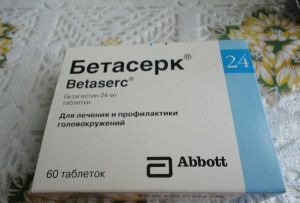 From neuroleptic drugs, it is advisable to use Tiaprid and Sulpiride. The anxiolytics that are used in these cases are represented by such drugs as Clonazepam, Phenazepam and Atarax.
From neuroleptic drugs, it is advisable to use Tiaprid and Sulpiride. The anxiolytics that are used in these cases are represented by such drugs as Clonazepam, Phenazepam and Atarax.
And among the antidepressants, such medicines as Fevarin and Paksin have proved to be very good.
In addition to treating dizziness, drugs are prescribed for the therapy of the main provoking disease, if any.
Additional tools and diet
Among other things that help in such conditions, you can distinguish:
- aromatherapy with the use of juniper and orange oil;
- reception of infusions from oregano and lavender;
- drinking ginger tea.
In addition, to get rid of psychogenic dizziness will need to revise the diet. This will help support the body, strengthen immunity and fill the lack of trace elements and nutrients, which will contribute to a speedy recovery.
For people suffering from psychogenic dizziness, it is important to consume foods high in vitamins A and C. These substances are present in such products:
- in vegetables, fruits and citrus fruits;
- in fish oil;
- in fatty sour-milk products;
- in the beef liver;
- in sprouted crops and hips.
To eat should be small portions, 5-6 times a day. This will allow the necessary substances to be better absorbed and accelerate the metabolic processes in the body.
Preventive measures
To prevent a head from spinning, it is necessary to take some preventive measures, namely:
- to avoid fatigue, observing the mode of work and rest;
- allocate sufficient time for sleep;
- to avoid stress and master the simplest techniques of relaxation and relaxation;
- to do exercises and more to be in the fresh air, especially it is important for a sedentary lifestyle and "sedentary" work;
- try not to make sudden movements when turning the head or changing the position of the body;
- to abstain from alcohol and smoking;
- to limit the intake of salt and, if possible, exclude from the diet strong tea and coffee, as well as various energy drinks.

It should be remembered that even with successful treatment and absence of serious diseases, dizziness attacks will not disappear the next day. It takes time to fully recover, and in order to speed up this process and reduce the frequency and intensity of seizures, it is necessary to follow the prescriptions of the attending physician and lead a healthy lifestyle.

